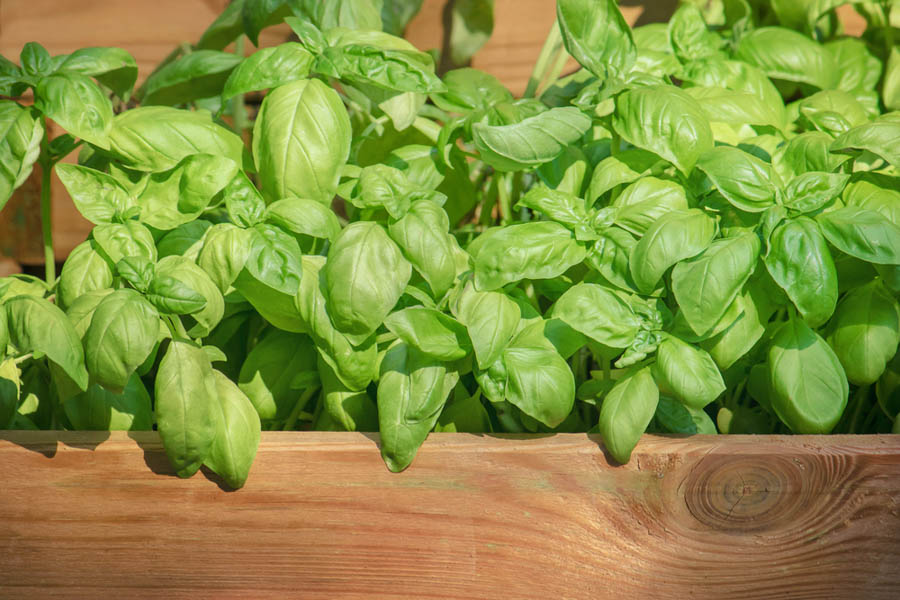General Information:
- Category- Vegetable
- Binomial Name- Ocimum basilicum
- Common Names- Basil
- Spread- 12 inches**
- Height- 20 inches**
- Average Production- NA
- Days to Maturity- 60 days
Nutrition Values:
- Calories: 22
- Water: 92 %
- Protein: 3.15 grams
- Carbohydrates: 2.65 grams
- Fiber: 1.6 grams
- Fat: 0.64 grams
Vitamins–
- Vitamin C: 85 mg
- Thiamin(B1): 0.034 mg
- Riboflavin(B2): 0.076 mg
- Niacin(B3): 0.902 mg
- Pantothenic acid(B5)- 0.209 mg
- Vitamin B-6: 0.155 mg
- Folate: 68 µg
- Vitamin A: 264 mcg
Minerals–
- Calcium: 177 mg
- Copper: 0.385 mg
- Iron: 3.17 mg
- Magnesium: 64 mg
- Phosphorus: 56 mg
- Manganese: 1.148 mg
- Selenium: 0.3 mcg
- Sodium: 4 mg
- Potassium: 738 mg
- Zinc: 0.9 mg
*The values are standard average per 100 grams and might change a bit.
Environmental Requirements:
- Soil- well- drained moist soil
- Soil Moisture- 20%
- Soil pH- 6.5-7.5
- Sun Requirements- Full Sun
- Best Time to Plant- From Spring to summer
- Temperature range- 16-35 Celsius
Tips to Grow Basil:
- Arrange good quality basil seeds..
- Soil should be moist but well-drained.
- Plant seeds/seedlings about 0.25 inch deep and 10 to 12 inches apart. They should grow to about 12 to 24 inches in height.For larger varieties, plant farther apart (about 16 to 24 inches).
- Tomato make great neighbors for basil plants in the garden and on the plate!
- Add compost to the planting bed for better growth.
- Start picking the leaves of basil as soon as the plants are 6 to 8 inches tall. Make sure to pick the leaves regularly to encourage growth throughout the summer.
- plant basil seeds in the garden every 2 to 3 weeks, for a continuous supply
** The values are standard values but might change a bit.
Show Comments



